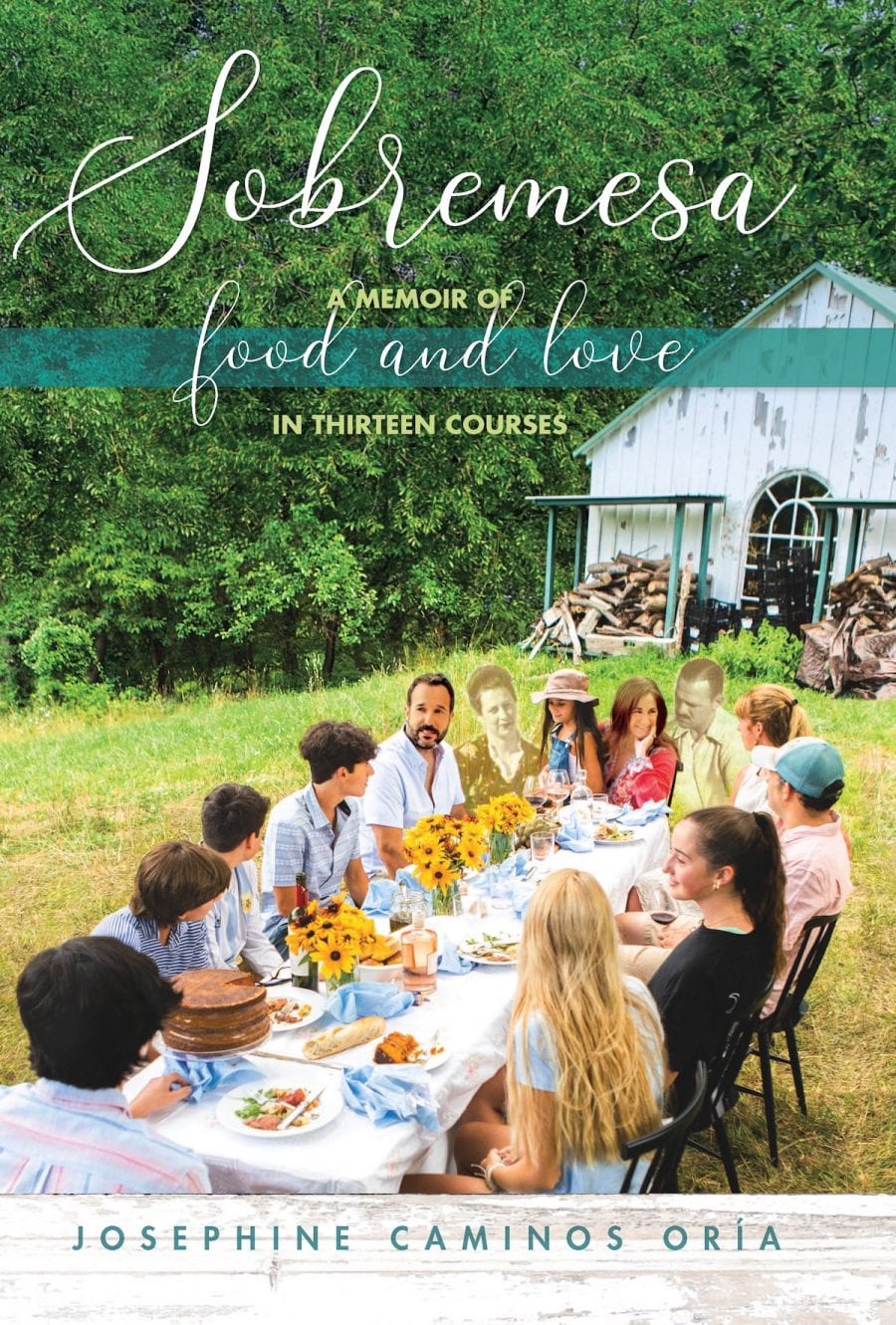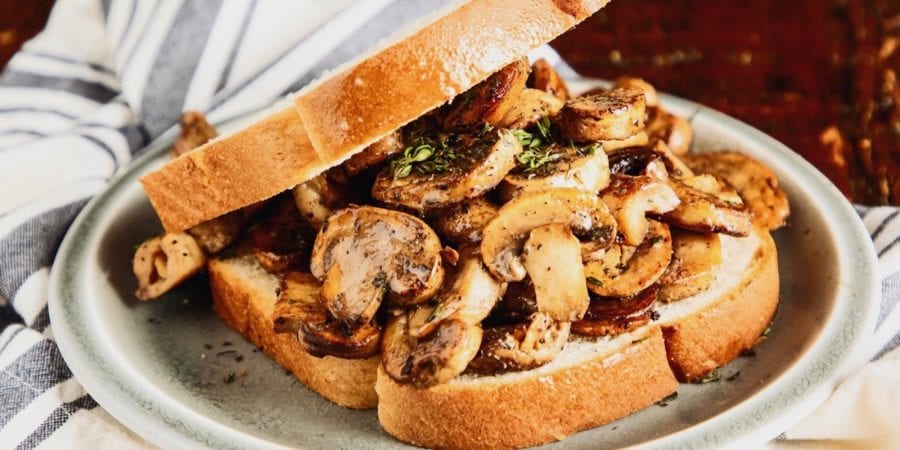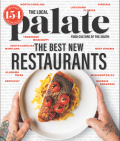Bookshelf: Sobremesa
In a hurried world, there’s nothing quite like sitting around the table after a meal, letting the discussion meander from buzzing gossip to lively debates. For Argentinians, it’s more than a casual way to avoid doing the dishes; it’s a cultural staple called sobremesa. Author Josephine Camino Orìa sums it up gracefully in the introduction of her new book of the same name: “Sobremesa was how I learned to make sense of the world—the good, lo malo, the beautiful, lo feo, the unexpected, lo esperado. Sobremesa wasn’t reserved for holidays or weekends; it happened every day of the week.”

These after-meal conversations form the backbone of Orìa’s memoir, which explores her upbringing as a second-generation Argentine-American. “You have two types of first-generation immigrants. My parents were of the camp that we would embrace living here, but when you’re at home, it’s still our Argentine home. They wouldn’t pass you the bread basket if you asked for it in English.” It created a sense of belonging and not, she explains, and a lot of second-generation immigrants exist in that in-between. For her, that relationship to her bicultural heritage created a deeper sense of identity, once she was able to reconnect with her roots through food. Sobremesa follows that journey and recounts the way those meals and memories helped her through grief and loss. Here, we chat with Orìa to hear more about what brought her to write this book—and learn we all need a little more sobremesa in our lives. “The dishes can always wait.”
What inspired you to take this leap of faith to leave your career and dive into the Argentine cuisine of your heritage?
In 2009, I started a small-batch artisanal company to make dulce de leches. I was at a crossroads, I’d been on fast-forward—I was going back to work within three weeks of having my children. (My husband’s degree didn’t transfer from Argentina, so I was the breadwinner with no paid maternity leave.) I started waking up in the middle of the night wondering “what am I missing?” and one night, I woke up with a desire to make dulce de leche. I didn’t understand why. It started as a gift for my grandmother’s ninetieth birthday and grew into a company and made me a mentor of other entrepreneurs. I ran that for seven years while working at my other company and having my fifth child. Fear kept me from leaving, but after seven years, I was still in the same place. It was either tread water or finally jump. Women are held to different expectations, mainly by ourselves. I would’ve done it sooner if I didn’t have young children I put first, but there’s a point when you realize you have to take care of yourself in order to take care of others.

Sobremesa wasn’t your first foray into writing a book. What brought you into the author realm?
I wanted to rewrite my story. One day, I turned to my husband and said, “No one knows how to say ‘dulce de leches.’ No one understands it. I need to write a book about it.” So, I wrote Dulce de Leche, which has chapter headnotes about each recipe’s backstory in my life. A lot of the time with food stories, it’s not about the food, it’s about where the food transports you. Writing Dulce de Leche whet my appetite to write Sobremesa; I needed a re-do to tell my whole story. When I told my mother-in-law, she asked me “why the hell are you writing a memoir?” It was the best question, because it isn’t about me. It could be your story or a story you want to believe in. Something you see yourself in, whether you’re bicultural or at a point in your life where you feel stuck or you’re getting through grief.
What was the writing process like?
It was like a spiritual journey, I threw myself into writing this book in 2017 and I’d write, throw it away, write, throw it away. When the pandemic hit and I was stuck at home, I went to my computer and said “Where is that damn story?” My husband told me I needed to write it and I asked him if he thought it was meant to be. “No,” he said, “you’re just driving me crazy.” After that, he read every chapter after I wrote it and we rewrote it in the way I talk to him.
What is sobremesa’s place in the world right now?
Sobremesa is a tradition we need now more than ever. Our global community is more connected than ever. None of us are immune to what’s happening in our world right now. Sobremesa is all about connectivity and taking the time to sit with others and have conversations we might otherwise not have.
Food and the sharing of meals is such an integral part of your story. How have you continued the traditions you grew up with in your own family now?
The pandemic really stopped us and forced us to slow down. Before that, we always had Sunday asado. Sobremesa is impossible every day, but we try to instill it three or four times a week, especially weekends, definitely Sunday. The true definition is “after the meal,” but there’s so much in the preparation as well—we’ve really incorporated our children in helping prepare the food. Last week, my daughter (nine) was making gnocchi with her dad. My husband and I are business partners, but spending that time together separates the business partner from the spouse. When we don’t carve out time to do it, we don’t feel grounded.
You share a few recipes throughout that speak to different points in your story. Is there a particular recipe you feel the strongest connection to?
The mushroom sandwich my mom would make me. It’s neither Argentine nor American, it’s just a love letter from my mom.

Champiñones a la Provenzal
(Mom’s Mushroom Sandwich)
“This might be the easiest dish you’ll ever prepare, but that doesn’t mean it’s not important. There are occasions when only a bag of sliced white bread will do. This is one of them. The bread takes a back seat to the snowcapped mushrooms, allowing their umami goodness to shine through. There’s one last requisite: This sandwich is best eaten in pajamas or old sweats, in bed or a comfy chair in front of the TV while watching a Hallmark or Lifetime movie or two.”
share
trending content
-
6 Things to Do Beyond Golf in Pinehurst
by TLP's Partners -
Charlottesville, Virginia Named Wine Region of the Year
-
A New Home for Lazy Betty
by Lia Picard -
Will Travel for Southern Food
by TLP Editors -
In the Spirit: Never Say Die Bourbon
by Amber Chase
More From In the Field
-
From Pop-Up To Brick-and-Mortar
-
The Return of the Lynnhaven Oyster | Listen
-
What’s On the Horizon for 2024
-
Sorelle: La Dolce Vita in Vogue
-
Keya and Co. Turning Sadness into Sugar





